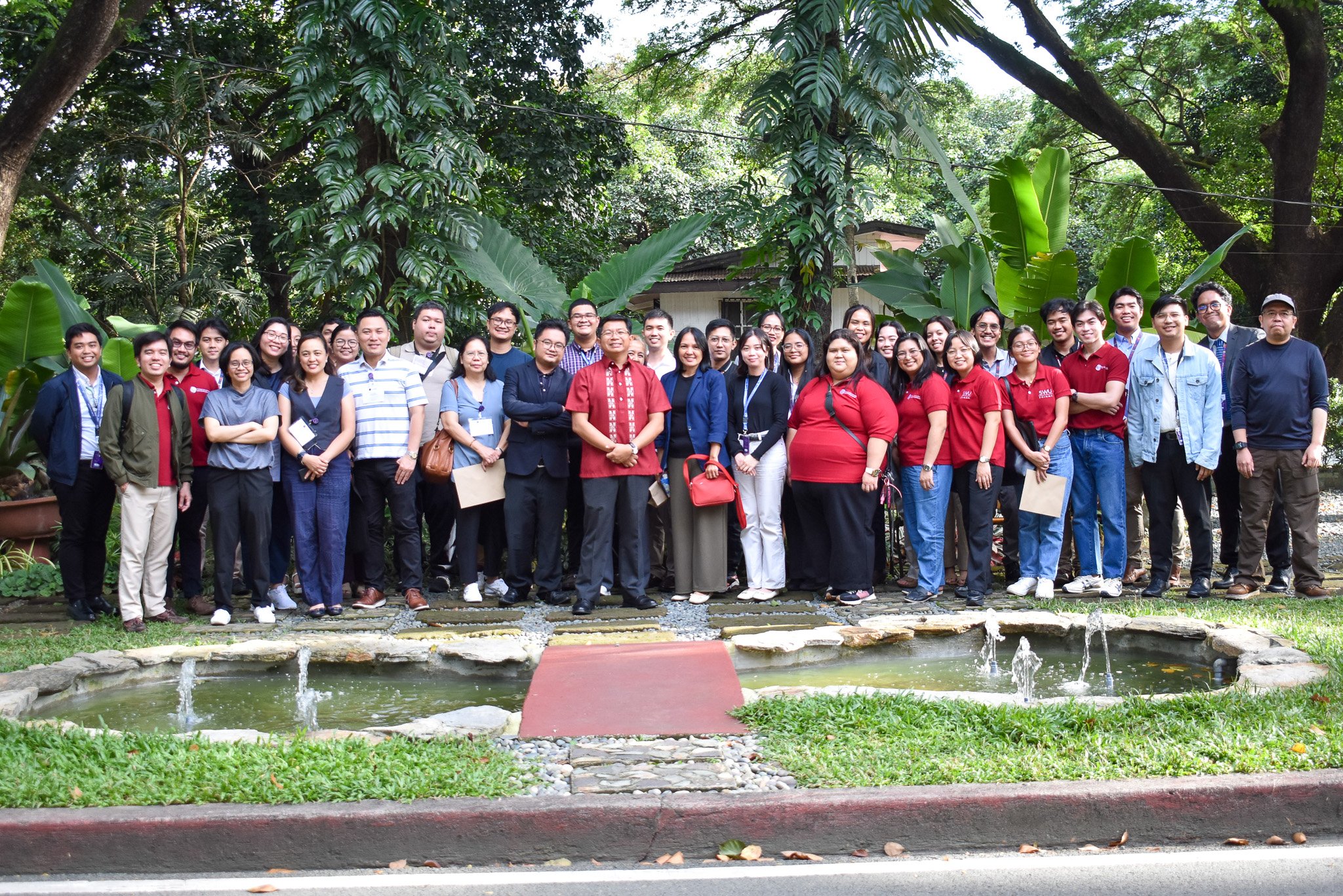
The Protein, Proteomics, and Metabolomics Facility (PGC-PPMF) continues to fulfill its vision of expanding capacity-building for Omics technologies in the Philippines. On October 1 and 2, 2024, the PPMF held a research design workshop and an MOU signing ceremony for the implementation of its extension program “Capacity Building for Clinicians and Early-Career Scientists on Proteomics-based Research”. The event begins the official implementation of the program through a research design workshop for project leaders in the partner institutions. This workshop focuses on planning for research and developing study designs for the use of proteomics in medical applications and precision medicine.

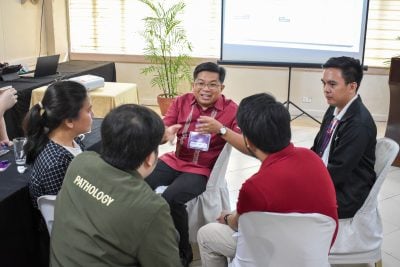
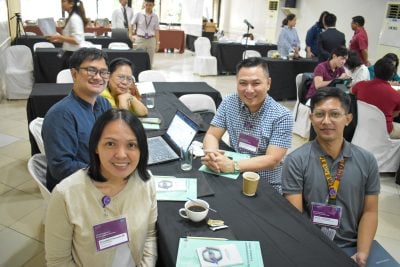
Opening the first day of the session is Dr. Phillip Ian P. Padilla, Assistant to the Executive Director for Services and Extension of the Philippine Genome Center (PGC)—who emphasized the important role of transformative universities like the University of the Philippines in advancing public service through the field of genomics. Dr. Padilla also highlighted in his message that academic institutions need to leverage their resources, expertise, and innovation for the betterment of society.
Day 1 consisted of lectures on clinical Proteomics which was started by Dr. Neil Andrew Bascos, Program Director of the PPMF with his presentation on “Proteomics for Disease Detection and Diagnosis”—followed by Dr. Eloise I. Prieto-Vasquez, Associate Professor of the National Institute of Molecular Biology and Biotechnology (NIMBB), University of the Philippines Diliman (UPD), and her talk on “Sample Preparation and Processing Workflows for Plasma Proteomics and Cancer Biomarker Discovery”. Another guest expert is Dr. Baby Rorielyn T. Dimayacyac-Esleta, Assistant Professor from the Institute of Chemistry UPD who lectured on “Clinical Proteomics for Discovery of Candidate Biomarkers, Research Design and Implementation”. Capping off the lectures is Dr. Aaron James F. Reyes, Faculty from the Department of Chemistry, De La Salle University with his talk on “Targeted Proteomics: From Research to the Clinic”. Throughout the sessions, attendees were able to discuss with the speakers on the topics presented during the lectures and go over the fundamentals of developing research design for proteomics-based analysis.
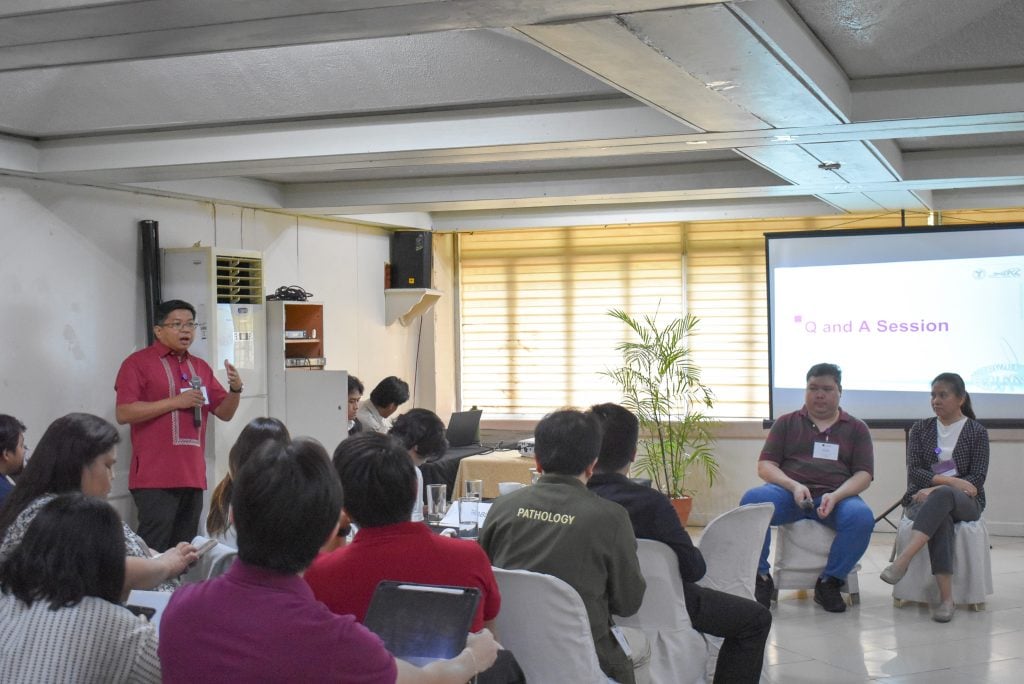
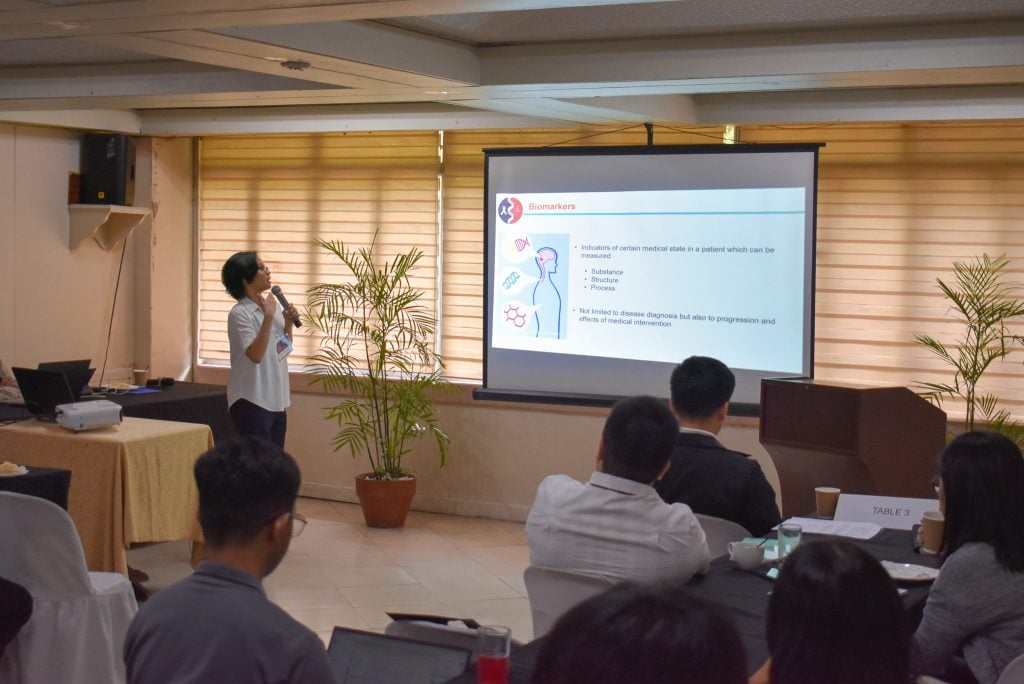
Associate Professor of the National Institute of Molecular Biology and Biotechnology (NIMBB), UP Diliman
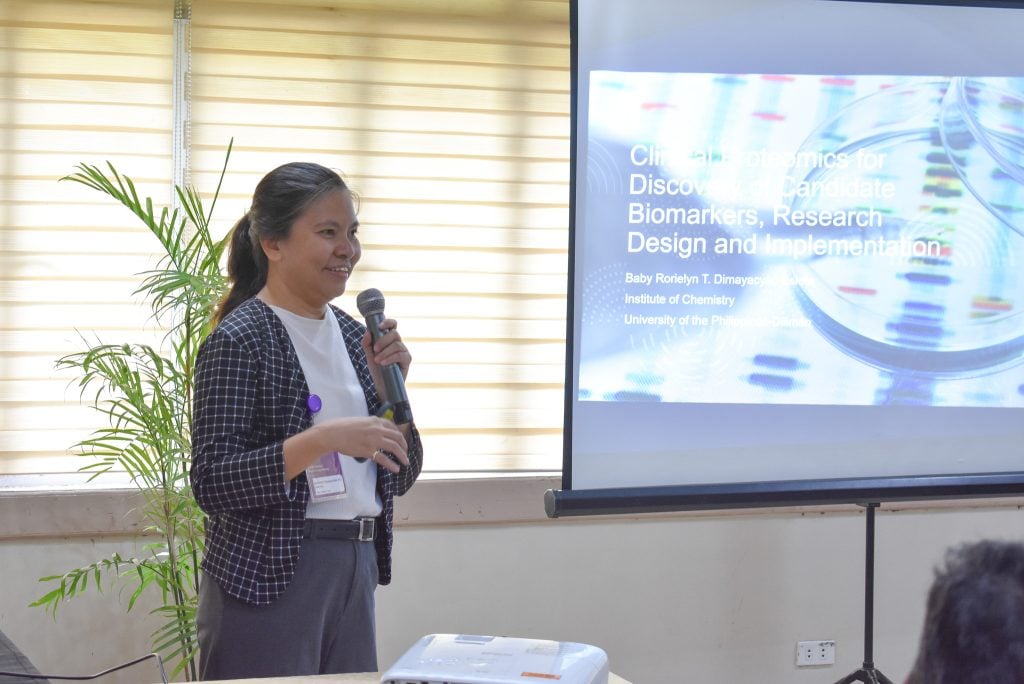
Assistant Professor from the Institute of Chemistry, UP Dilliman
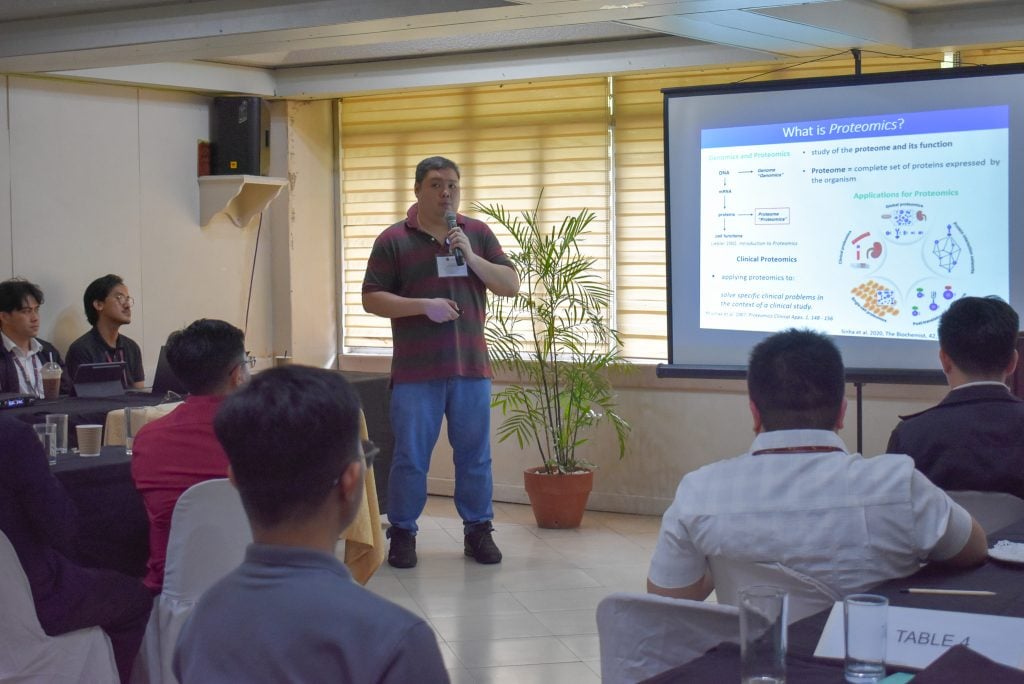
De La Salle University
Opening Day 2 is Dr. Felicitas Lacbawan, Executive Director of the PGC, who shared her anticipation for the program as it will foster better utilization of both proteomics and genomics techniques for Filipino clinician researchers. The collaborative work with partner university medical programs will better implement the benefits of Omics technologies for diagnoses and therapy. Dr. Lacbawan also acknowledged the representatives of the different partner institutions for the signing of their respective Memorandum of Understanding (MOU) with the University of the Philippines System (UPS). Joining the ceremony were Presidents and high-ranking officials from Far Eastern University-Nicanor Reyes Medical Foundation (FEU-NRMF); Manila Central University (MCU); Pamantasan ng Lungsod ng Maynila (PLM); San Beda University (SBU); Southwestern University Philippine Investment Management Inc. (SWU PHINMA); Davao Medical School Foundation Inc.; and Vicente Memorial Medical Center. The UP President, Atty. Angelo Jimenez, graced the event, and signed the MOUs on behalf of the University of the Philippines.
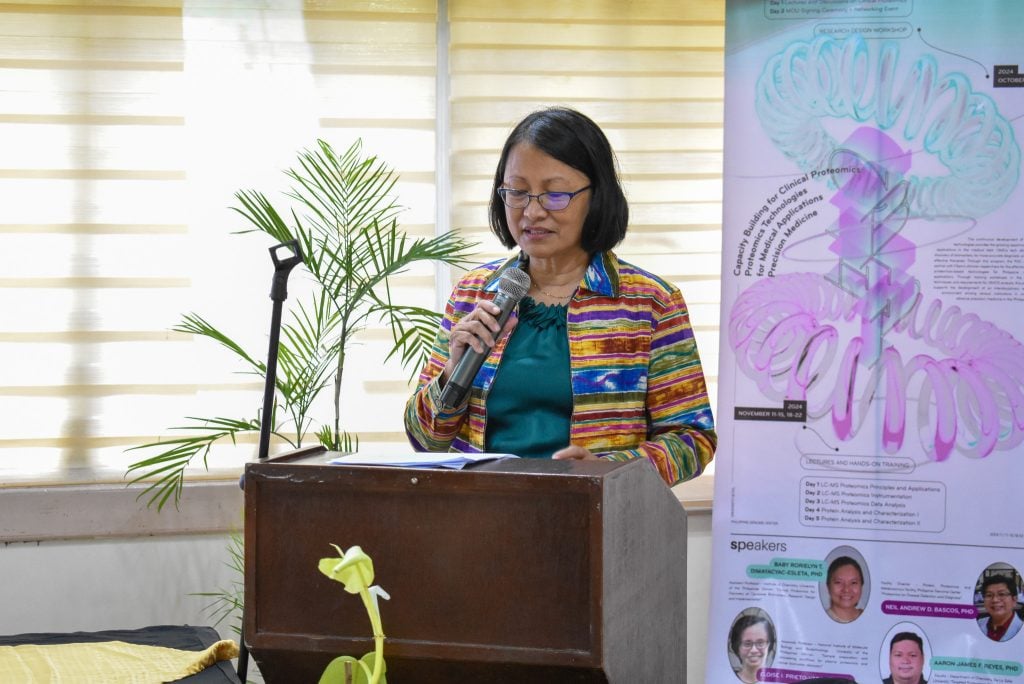
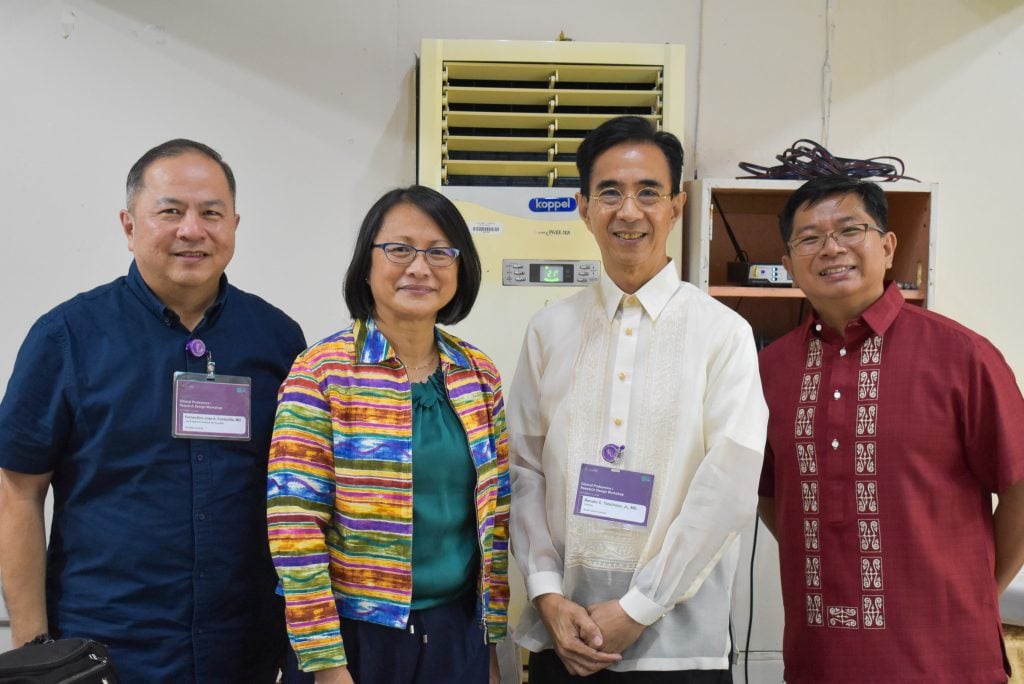
Dr. Felicitas Lacbawan, Executive Director, UP Philippine Genome Center;
Dr. Renato Tanchoco, Jr., University President, Manila Central University;
Dr. Neil Andrew Bascos, Program Director of the PPMF
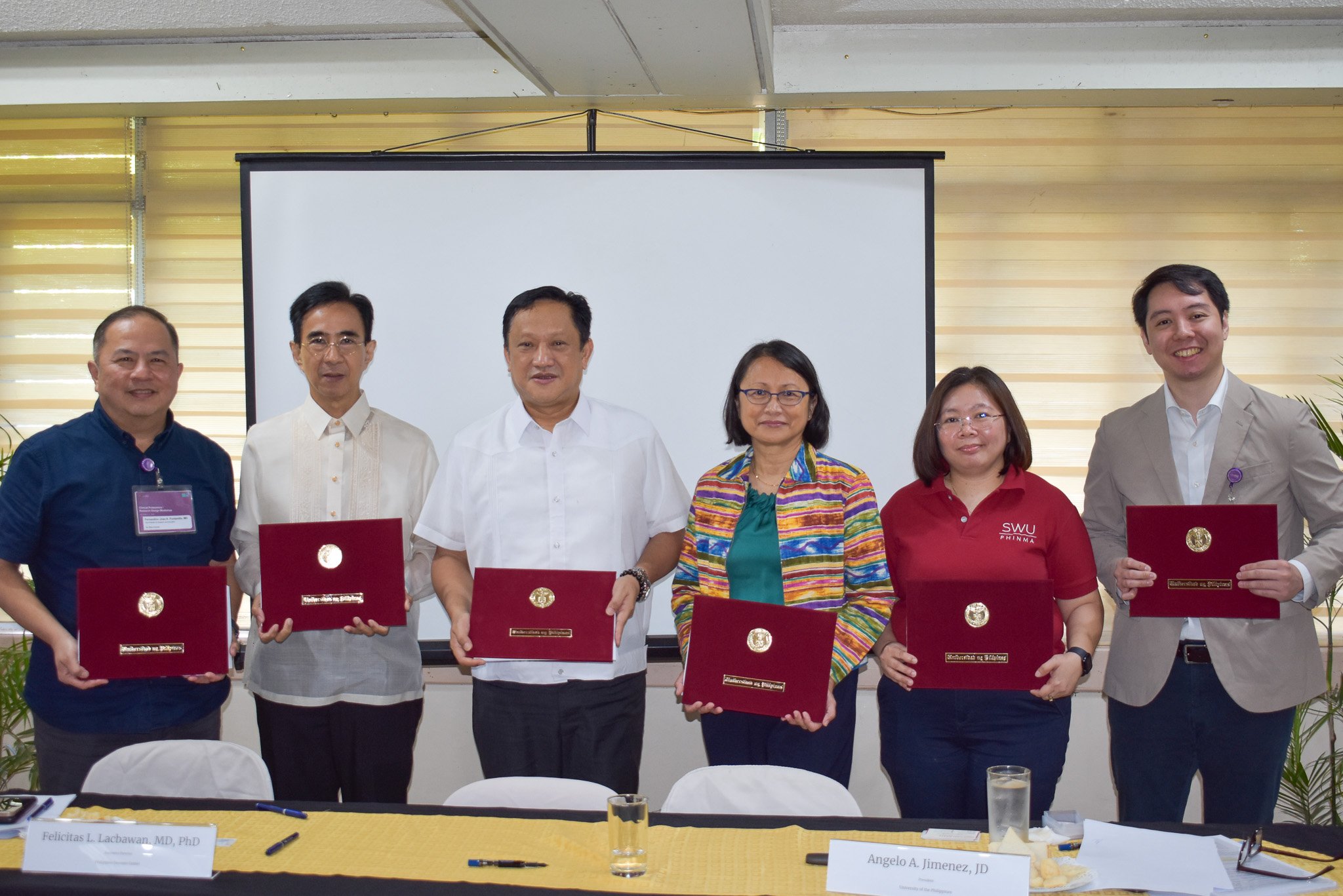
UP President Angelo Jimenez; Dr. Felicitas Lacbawan, Executive Director, UP Philippine Genome Center;
Cheryl Jane Chan, COO, Southwestern University Philippine Investment Management Inc.;
and Kevyn Joseph Reyes, Presidential Chief of Staff, Far Eastern University-Nicanor Reyes Medical Foundation
The signing ceremony highlights the program’s vision of promoting the significance of proteomics-based technologies for Philippine medical applications. Empowering our Filipino Clinician Researchers with the capacity for Omics analysis would translate to better healthcare for the country. Additionally, the event strengthens ties with the partner institutions and helps build concrete ways to support an interdisciplinary research environment for precision medicine in the Philippines. UP President Angelo Jimenez, during his remarks, expressed his commitment to work with the partner universities as part of the national university’s pursuit of justice, equity, and prosperity—through knowledge co-creation and collaborative partnerships. Representatives from the partner universities similarly shared in their statements the anticipation, and excitement for the program, and their appreciation of the opportunities to work together in fulfilling a common academic purpose for the benefit of the country.
Dr. Neil Andrew Bascos, in his message for the program, identifies the significant need to raise awareness of Multi-Omics Technologies and their applications for better healthcare strategies. Through this capacity building program, the PGC-PPMF hopes to empower Filipino clinicians with Omics Tech capabilities, and with them, build a better Philippines
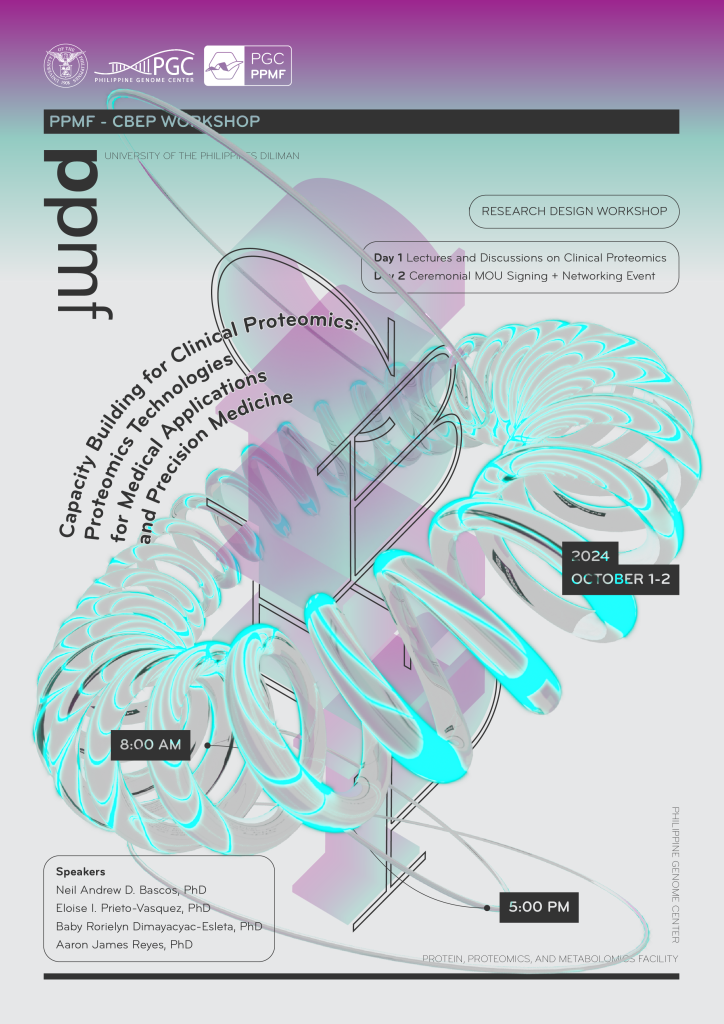
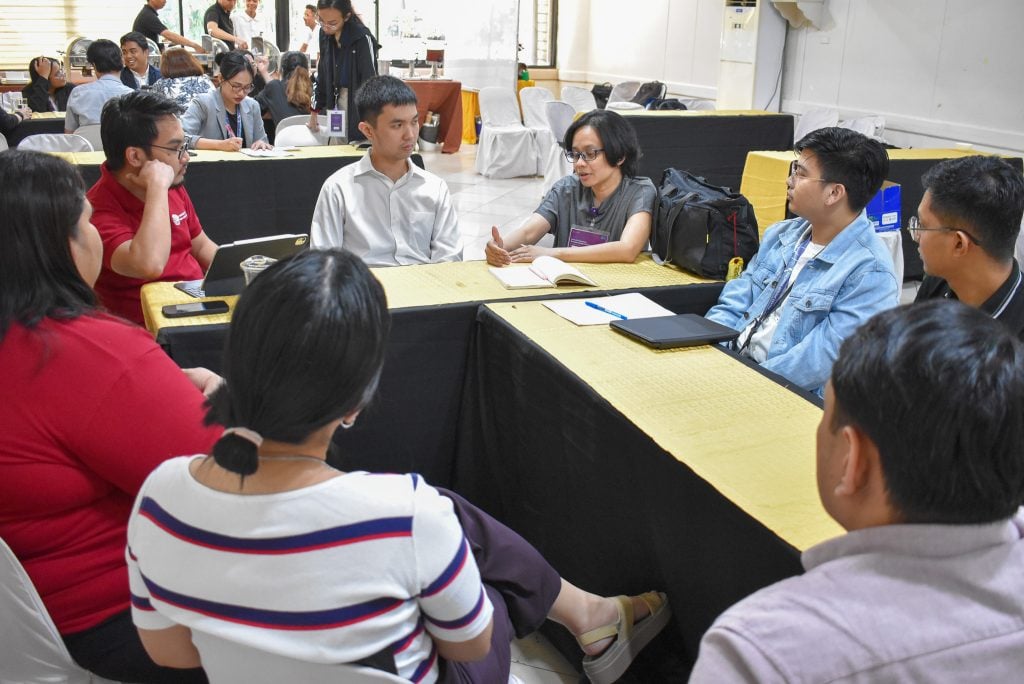
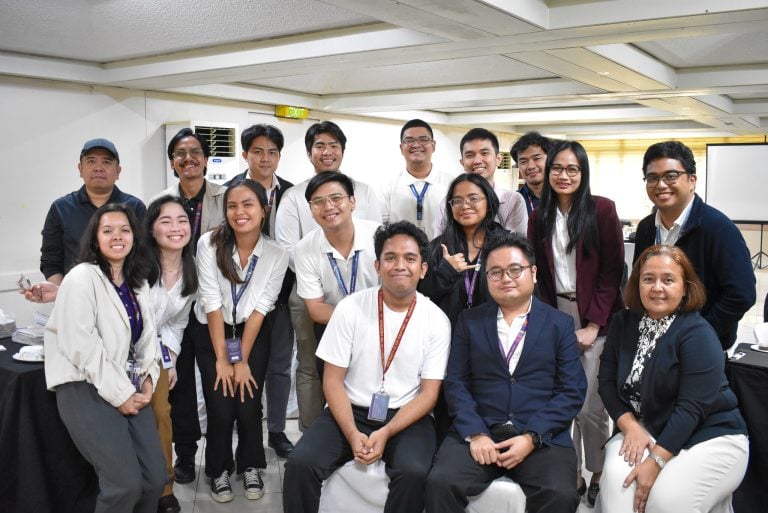
To know more about the Protein, Proteomics, and Metabolomics Facility, visit this page: https://pgc.up.edu.ph/services/protein-proteomics-and-metabolomics/ or reach out to our team for inquiries via [email protected]
